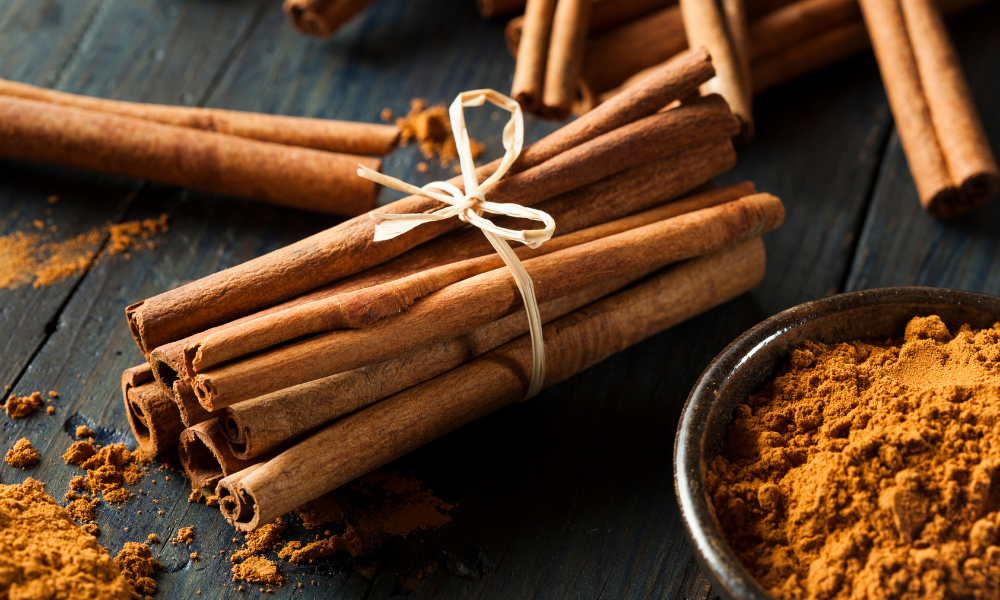Spice Up Your Life with Cinnamon

Tried and true, cinnamon has a long history as both a spice and a medicine.
Moses used it as an ingredient in holy anointing oils (Exodus 30:22-25). Cleopatra (69-30 B.C.) is said to have carried cinnamon with her jewels. During the Roman Empire, cinnamon bark was burned as incense in the temples and wealthy Romans used it in their baths.
Cinnamon offers many health benefits such as:
- Antifungal, antibacterial and anti-parasitic properties
- Anti-inflammatory properties
- Excellent source of manganese, dietary fiber, iron and calcium
- Reduces blood sugar, triglyceride and cholesterol levels
- Treats digestive disorders such as indigestion, flatulence, diarrhea, and loss of appetite
- Aids in digestion by stimulating saliva and gastric juices
- Improves general circulation
Doctors have even suggested that even smelling cinnamon can improve memory and performance of certain tasks!
But did you know there is more than one kind of cinnamon? The two most popular are: Ceylon (True) Cinnamon which comes from the bark of the Cinnamomum zeylanicum tree in Sri Lanka, and Cassia (Chinese) Cinnamon which comes from the bark of the Cinnamomum cassia tree grown in China and Indonesia. When we go to the grocery store’s spice aisle, we are typically purchasing the harsh and pungent Cassia Cinnamon.
Both varieties share some benefits, however, the aroma and taste of Ceylon are far more appealing.
Click here to try one of our favorites.
Cinnamon can be a very pleasant and beneficial addition to our menus, but be sure to use in moderation; in large doses, Cassia cinnamon may actually cause health damages and negatively impact the liver and kidneys.
